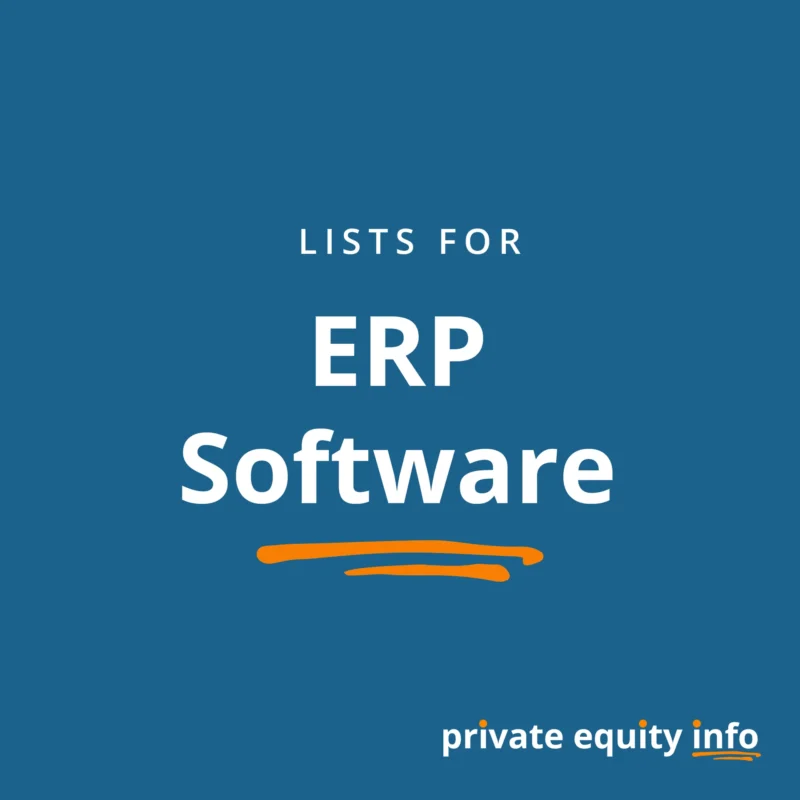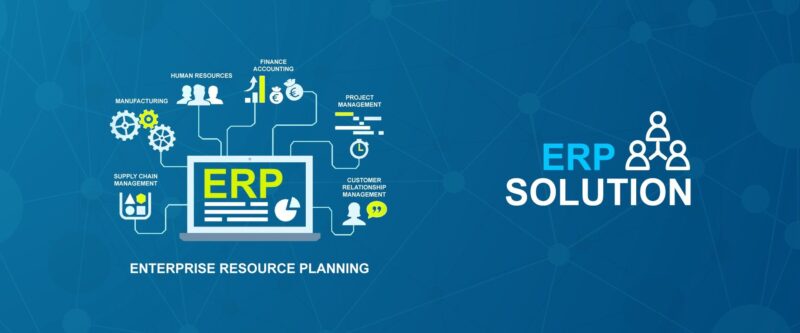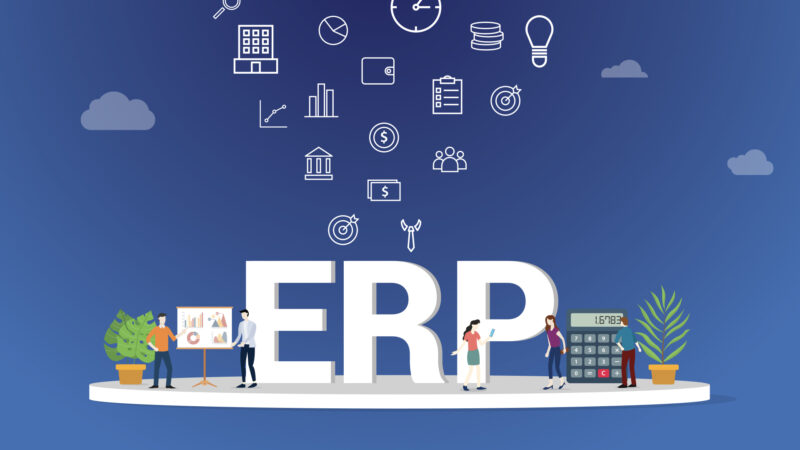Introduction
In the fast-paced world of private equity, staying ahead of the competition is crucial. That’s where private equity erp software comes into play. But what exactly is it? Why is it so important in the industry? And what benefits does it offer? In this article, I’ll delve into these questions to help you understand the power of Private Equity ERP Software and how it can transform your operations.
Mục lục

What is Private Equity ERP Software?
Private Equity ERP Software is a comprehensive solution designed specifically for private equity firms to streamline their operations, enhance efficiency, and drive growth. It integrates various functions and data into a centralized platform, providing a holistic view of the organization’s financials, portfolio management, deal tracking, reporting, and investor relations.
Importance of Private Equity ERP Software in the Industry
In the competitive landscape of private equity, having a robust and tailored software solution is no longer a luxury but a necessity. Private Equity ERP Software enables firms to automate repetitive tasks, optimize decision-making processes, and gain real-time insights into their investments. It empowers professionals to focus on strategic initiatives, deal sourcing, and value creation, rather than getting bogged down by manual processes and data silos.
Benefits of Using Private Equity ERP Software
Private Equity ERP Software offers a multitude of benefits that can significantly impact your firm’s performance and bottom line. By leveraging this software, you can:
- Enhance Operational Efficiency: Streamline your workflows, automate manual tasks, and eliminate data duplication, resulting in increased productivity and reduced operational costs.
- Gain Real-time Insights: Access comprehensive and up-to-date information on financials, portfolios, investments, and performance metrics, enabling you to make data-driven decisions with confidence.
- Improve Investor Relations: Provide your investors with secure, self-service portals to access reports, track their investments, and communicate seamlessly, fostering strong relationships and trust.
- Ensure Compliance and Regulatory Support: Stay compliant with industry regulations and reporting standards, mitigating risks and maintaining a solid reputation.
- Drive Portfolio Performance: Optimize your investment strategies, monitor portfolio performance, and identify trends, enabling you to maximize returns and deliver value to your stakeholders.
Private Equity ERP Software is not just a tool; it’s a game-changer that empowers private equity firms to thrive in a dynamic and competitive landscape. Stay tuned for the next section, where we’ll dive deeper into the key features that make Private Equity ERP Software indispensable in the industry.
Features of Private Equity ERP Software

Private Equity ERP Software offers a wide range of features that cater specifically to the unique needs of private equity firms. Let’s explore the key functionalities that make this software an indispensable tool for streamlining operations and driving growth.
Financial Management
Effective financial management is the cornerstone of any successful private equity firm. Private Equity ERP Software provides robust financial modules that enable firms to automate core accounting processes, manage cash flows, track expenses, and generate comprehensive financial reports. With real-time financial visibility, you can make informed decisions and optimize your financial performance.
Portfolio Management
Managing a diverse portfolio of investments requires careful oversight and analysis. Private Equity ERP Software provides portfolio management tools that allow firms to track investments, monitor performance, and analyze risks across various asset classes. With intuitive dashboards and customizable reports, you can gain deep insights into portfolio performance, make informed investment decisions, and proactively manage risk.
Deal Management
Efficient deal management is essential for private equity firms to identify, evaluate, and execute investment opportunities. Private Equity ERP Software offers deal management capabilities that streamline the deal pipeline, automate due diligence processes, and facilitate collaboration among deal teams. With centralized deal information and document management, you can accelerate deal execution, reduce manual errors, and enhance deal tracking.
Reporting and Analytics
Private equity firms rely on accurate and timely reporting to communicate with investors, stakeholders, and regulatory bodies. Private Equity ERP Software provides robust reporting and analytics tools that enable firms to generate comprehensive reports, track key performance indicators, and measure investment performance. With customizable dashboards and advanced analytics, you can gain actionable insights, track trends, and make data-driven decisions.
Investor Relations
Building strong relationships with investors is crucial for private equity firms. Private Equity ERP Software offers investor relations functionalities that empower firms to provide secure, self-service portals for investors to access reports, track investments, and communicate seamlessly. By enhancing transparency and empowering investors, you can strengthen relationships, foster trust, and attract new investors.
Compliance and Regulatory Support
Compliance with industry regulations and reporting standards is paramount for private equity firms. Private Equity ERP Software provides compliance and regulatory support, ensuring firms adhere to regulations, automate compliance processes, and generate accurate regulatory reports. By minimizing compliance risks and maintaining a solid reputation, you can instill confidence in investors and stakeholders.
Private Equity ERP Software combines these powerful features to provide a comprehensive solution tailored to the unique needs of private equity firms. In the next section, we’ll delve into the factors you should consider when choosing the right Private Equity ERP Software for your firm.
Factors to Consider When Choosing Private Equity ERP Software

When selecting a Private Equity ERP Software for your firm, it’s crucial to carefully evaluate various factors to ensure you make the right choice. Let’s explore some key considerations that should be on your radar:
Scalability and Customization Options
As your firm grows and evolves, your software should be able to scale alongside it. Look for a solution that offers scalability, allowing you to accommodate increasing data volumes and handle larger portfolios. Additionally, consider the customization options available. Every firm operates differently, so finding a software that can be tailored to your specific needs is essential.
Integration Capabilities
Efficient integration with your existing systems is vital for a seamless workflow. Ensure that the Private Equity ERP Software you choose can integrate with other essential tools and platforms, such as accounting software, CRM systems, and data providers. This integration will enable data synchronization, eliminating manual data entry and reducing the risk of errors.
User-Friendly Interface
User experience plays a significant role in the successful adoption of any software. A user-friendly interface ensures that your team can quickly navigate and use the software without extensive training. Look for a solution that offers intuitive navigation, clear workflows, and customizable dashboards to enhance user productivity.
Security Measures
Data security is paramount in the private equity industry, where sensitive and confidential information is at stake. Ensure that the software you choose provides robust security measures, such as encryption, access controls, and regular security updates. Additionally, inquire about data backup and disaster recovery plans to safeguard your valuable data.
Vendor Reputation and Support
Choosing a reputable vendor is essential for a smooth implementation and ongoing support. Research the vendor’s track record, industry experience, and client testimonials. Consider their customer support services, response times, and availability for assistance. A reliable vendor will be a trusted partner in your software journey, providing continuous support and updates.
By thoroughly evaluating these factors, you can make an informed decision when selecting a Private Equity ERP Software that aligns with your firm’s unique requirements. In the next section, we will explore the top Private Equity ERP Software options available in the market, helping you narrow down your choices.
Top Private Equity ERP Software in the Market

When it comes to Private Equity ERP Software, there are several top-notch solutions available in the market that cater specifically to the unique needs of private equity firms. Let’s explore three prominent software options and delve into their features, pricing, and customer reviews.
A. Software 1
- Features and Capabilities: Software 1 offers a comprehensive suite of features tailored to the requirements of private equity firms. It provides robust financial management tools, portfolio tracking and analysis capabilities, deal management functionalities, advanced reporting and analytics, and investor relations modules. With its intuitive interface and customizable dashboards, Software 1 empowers users to efficiently manage their operations.
- Pricing: The pricing structure of Software 1 varies based on the scale and specific requirements of your firm. It’s best to reach out to their sales team to get a personalized quote and explore the available pricing options.
- Customer Reviews and Ratings: According to customer reviews, Software 1 has garnered positive feedback for its user-friendly interface, powerful features, and exceptional customer support. Users have praised its ability to streamline their workflows, improve data accuracy, and provide real-time insights for informed decision-making.
B. Software 2
- Features and Capabilities: Software 2 is another leading Private Equity ERP Software that offers a comprehensive set of features to drive operational efficiency and portfolio performance. It includes financial management tools, portfolio tracking functionalities, deal pipeline management, robust reporting and analytics, investor relations modules, and compliance support. Software 2’s integration capabilities also make it easy to connect with other systems.
- Pricing: To obtain accurate pricing details for Software 2, it’s recommended to contact their sales team directly. They can provide you with customized pricing options based on your firm’s requirements and user licenses.
- Customer Reviews and Ratings: Customers who have used Software 2 have praised its seamless integration capabilities, user-friendly interface, and comprehensive reporting functionalities. Users have highlighted that the software has helped them streamline their processes, improve transparency, and enhance collaboration across teams.
C. Software 3
- Features and Capabilities: Software 3 is a renowned Private Equity ERP Software that offers a wide range of features and capabilities. It encompasses financial management tools, portfolio monitoring and analysis, deal tracking, reporting and analytics, investor relations functionalities, and compliance support. Software 3’s flexible and customizable platform allows firms to tailor the software to their specific needs.
- Pricing: To obtain accurate pricing information for Software 3, it’s recommended to reach out to their sales team. They can provide you with detailed pricing options based on your firm’s size, requirements, and implementation needs.
- Customer Reviews and Ratings: Customers who have utilized Software 3 have commended its user-friendly interface, powerful reporting capabilities, and excellent customer support. Users have reported improved efficiency, better data visibility, and enhanced decision-making processes as key benefits of using Software 3.
As you explore these top Private Equity ERP Software options, it’s important to consider your firm’s unique requirements, budget, and scalability needs. Take the time to evaluate each software’s features, pricing, and customer reviews to find the perfect fit for your private equity operations.
Implementation and Integration of Private Equity ERP Software

Private Equity ERP Software implementation requires careful planning and seamless integration to ensure a smooth transition. Let’s explore the key steps involved in this process:
Planning and Preparation
Before implementing Private Equity ERP Software, it’s crucial to establish clear objectives and define the scope of the project. This involves assessing your firm’s specific needs, conducting a thorough analysis of existing systems and processes, and determining the desired outcomes. Collaborate with key stakeholders to create a detailed implementation plan, including timelines, resource allocation, and milestones.
Data Migration
Migrating data from legacy systems to the new ERP software is a critical step. It’s essential to ensure the accuracy and integrity of the data during this process. Identify the data to be migrated, cleanse and organize it, and establish data mapping to align with the new system’s structure. Collaborate with the software vendor to determine the most efficient data migration strategy, considering factors such as data volume, complexity, and data security.
Training and Support
Proper training is vital to maximize the benefits of Private Equity ERP Software. Ensure your team receives comprehensive training on the software’s functionalities, workflows, and best practices. The software vendor should provide training resources, user guides, and ongoing support to address any questions or challenges that may arise during the implementation phase. Encourage open communication and provide avenues for feedback to foster a smooth transition.
Testing and Deployment
Before fully deploying the Private Equity ERP Software, it’s crucial to conduct thorough testing to ensure its stability, functionality, and compatibility. Create test scenarios and perform rigorous testing to identify and resolve any potential issues or bugs. Once the software passes the testing phase, proceed with the deployment following the implementation plan. Monitor the system closely during the initial period to address any unforeseen issues promptly.
Successfully implementing and integrating Private Equity ERP Software requires careful planning, data migration, comprehensive training, and thorough testing. By following these steps, you can ensure a seamless transition and harness the full potential of the software. In the next section, we’ll explore the top Private Equity ERP Software solutions available in the market.
Conclusion

In conclusion, Private Equity ERP Software is revolutionizing the private equity industry by providing comprehensive solutions that enhance operational efficiency, drive growth, and improve investor relations. With its ability to streamline workflows, provide real-time insights, ensure compliance, and optimize portfolio performance, Private Equity ERP Software has become an essential tool for firms seeking to stay competitive in today’s fast-paced environment.
By leveraging the power of Private Equity ERP Software, private equity firms can automate manual tasks, eliminate data silos, and make data-driven decisions with confidence. The benefits are far-reaching, from increasing productivity and reducing operational costs to fostering stronger investor relationships and maximizing returns on investments.
When choosing the right Private Equity ERP Software for your firm, it’s important to consider factors such as scalability, customization options, integration capabilities, user-friendly interfaces, security measures, and vendor reputation. You want a solution that not only meets your current needs but also has the flexibility to adapt as your firm grows and evolves.
At erp.ebest.vn, we understand the unique challenges faced by private equity firms, and our Private Equity ERP Software is designed to address those challenges head-on. With our comprehensive features, robust support, and commitment to innovation, we are dedicated to helping you unlock your firm’s full potential.